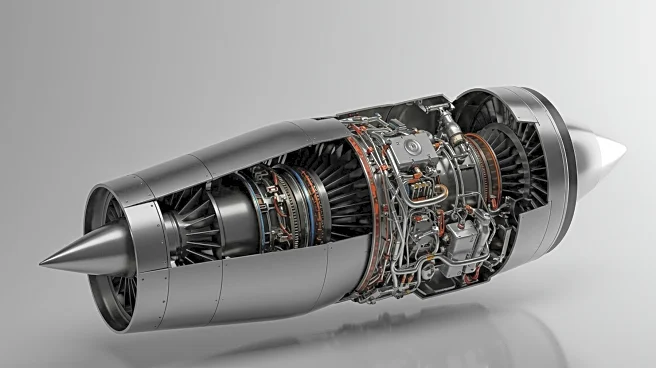What's Happening?
The aviation industry is facing significant challenges as airlines and asset owners seek alternative maintenance strategies for older engines to avoid the high costs associated with full performance restoration. At the Aviation Week Network’s Engine Leasing, Trading and Finance (ELTF) Europe event, industry experts discussed the growing demand for lighter work scopes, shorter builds, green time leasing, and module exchanges. However, these alternatives come with their own set of disadvantages. For instance, short-build engines are criticized for their economic inefficiency, as noted by SMBC Aero Engine Lease Managing Director Roger Welaratne. Additionally, module swaps, while offering time and cost savings, are becoming less advantageous due to extended swap durations. The pandemic has also impacted green time leasing, with spare cycles now depleted and lessors extending terms significantly.
Why It's Important?
The exploration of alternative engine maintenance strategies is crucial for the aviation industry, which is grappling with high overhaul costs. These costs are influencing trading decisions and asset management strategies, affecting airlines' operational efficiency and financial planning. The shift towards alternatives like short-build engines and module swaps reflects a broader industry trend to optimize maintenance costs and extend engine life. However, the challenges associated with these strategies could impact airlines' ability to manage fleets effectively, potentially leading to increased operational costs and affecting profitability. As airlines like Brazilian carrier Gol have experienced, reliance on green time markets can be risky, necessitating better planning and strategy development.
What's Next?
The aviation industry is likely to continue exploring and refining alternative maintenance strategies to address the economic challenges posed by high overhaul costs. Airlines may need to develop more robust end-of-lease strategies to mitigate risks associated with green time leasing and module swaps. Industry stakeholders, including lessors and maintenance providers, may collaborate to innovate and improve the efficiency of these alternatives. The upcoming September issue of Inside MRO is expected to provide further insights into engine aftermarket trends and perspectives from lessors, which could influence future strategies and decisions in the industry.









